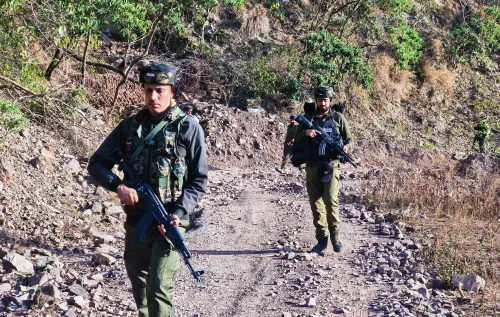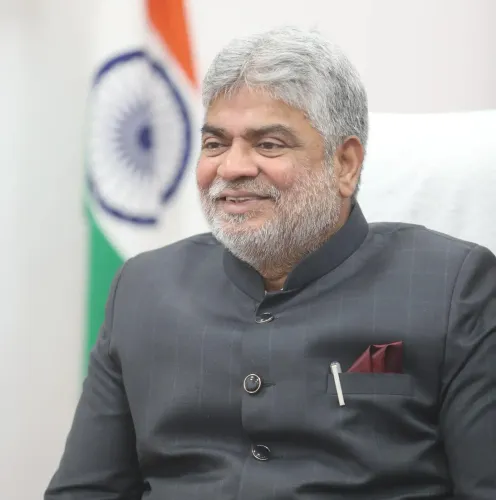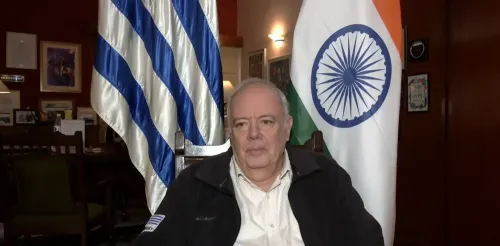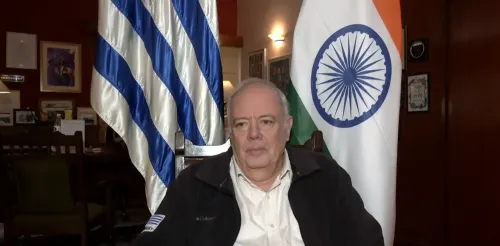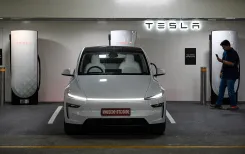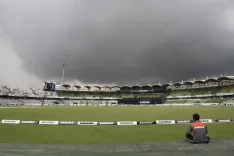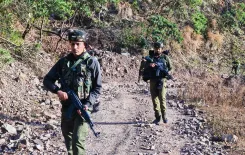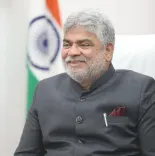No Authority Above Parliament in Constitution: VP Dhankhar
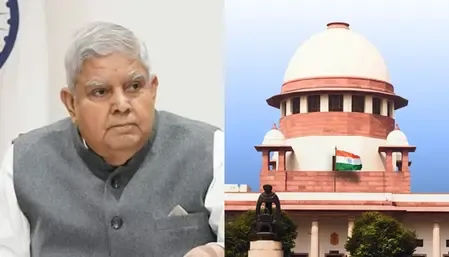
Synopsis
Key Takeaways
- VP Dhankhar criticized Indira Gandhi's Emergency rule.
- He asserted the supremacy of Parliament in democracy.
- Elected representatives are the ultimate guardians of the Constitution.
- Citizens hold significant power in shaping democracy through voting.
- All democratic organs must respect citizens and their representatives.
New Delhi, April 22 (NationPress) Criticizing late Prime Minister Indira Gandhi for her imposition of Emergency, Vice President Jagdeep Dhankhar emphasized the supremacy of citizens and Parliament within a democratic framework, asserting that the representatives elected by voters are the “ultimate masters” and guardians of the Constitution's principles. He reiterated that the Constitution does not envision any authority above Parliament.
While serving as the chief guest at the ‘Kartavyam’ event, which celebrated 75 years of the Indian Constitution at Delhi University, Dhankhar stated, “Elected representatives are the ultimate masters regarding the content of the Constitution. The Parliament holds supreme authority, and in this regard, it is as supreme as every citizen in the nation.”
In light of ongoing discussions surrounding judicial overreach in the Tamil Nadu Bills case—where the Supreme Court imposed a three-month limit for the President to decide on the assent to Bills—Dhankhar reminded citizens of their voting power and role in shaping democracy.
“In 1977, a Prime Minister who imposed Emergency was held accountable through elections; thus, let there be no doubt that the Constitution serves the people, with elected representatives safeguarding its integrity,” he noted.
The Vice President, who has faced criticism for his recent strong remarks about the judiciary regarding the President's functions, urged all constitutional officials to recognize their limitations.
In a subtle critique, he stated that all branches of democracy must respect the citizens, their elected representatives, and Parliament.
He also challenged some constitutional experts who labeled the President as merely a titular or ceremonial figure to justify the imposed three-month deadline for Bill decisions.
“This misunderstanding of the roles within our country—be it a constitutional official or a citizen—could not be more erroneous,” he remarked.
“Democracy thrives through its citizens. Each individual plays a part. The essence of democracy is alive in every citizen. When citizens remain vigilant and engaged, democratic values flourish,” he asserted.
Dhankhar’s remarks, made in his capacity as the ex-officio Chancellor of the University of Delhi, followed a day after the Supreme Court refrained from directing the Union government in a recent case, acknowledging accusations of encroaching on Parliament’s domain.
Earlier this month, the Supreme Court, utilizing its inherent powers under Article 142 of the Constitution, resolved a standoff between the Tamil Nadu government and Governor R.N. Ravi concerning the delay in granting assent to Assembly-passed Bills.
In doing so, the apex court seemingly subjected Presidential actions to judicial scrutiny by endorsing the three-month consent deadline for Bills.
The controversy escalated when Dhankhar labeled Article 142 as a ‘nuclear missile’ wielded by the judiciary against democratic institutions.
The discussion gained momentum, with former Union Minister and distinguished lawyer Kapil Sibal branding Dhankhar's critique as an assault on the judiciary, potentially undermining public confidence in the courts.
Conversely, notable lawyer Mahesh Jethmalani expressed support for the Vice President in his duty to uphold the Constitution.


